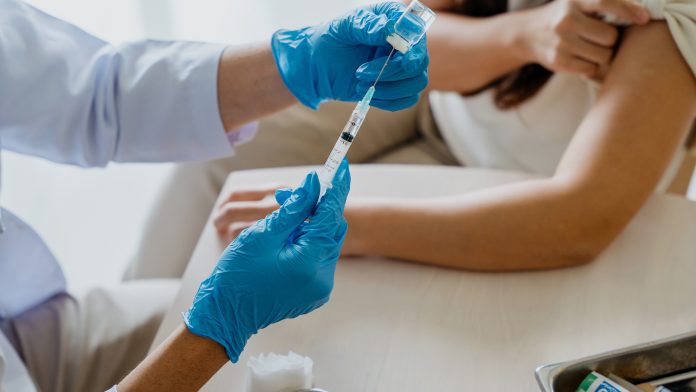
A new study has found that individuals with anxiety disorders were no less hesitant to get the COVID-19 vaccine.
Researchers from the University of Waterloo have investigated the relationship between vaccine hesitancy, psychological factors associated with anxiety disorders, and the individual’s reasoning for and against getting the COVID-19 vaccine.
Generalised anxiety disorder is a long-term condition causing the individual to feel anxious most days. This disorder causes both psychological and physical symptoms including feeling restless, having trouble sleeping and dizziness.
Searching for answers about COVID-19 vaccine hesitancy
To conduct the study, the researchers surveyed 148 participants with or without anxiety disorders. All participants completed an online questionnaire examining COVID-19 vaccine hesitancy and other related variables such as conspiracy beliefs, individualism, and intolerance of uncertainty. The researchers also asked what the top reasons were for and against the vaccine.
The most common reasons that participants were hesitant to get the vaccine were related to the vaccine’s effectiveness and novelty, and fear of adverse events. However, some participants were keen to get the vaccine to protect others and themselves, and to return to normalcy.
The role of anxiety disorders in vaccine hesitancy
When the researchers looked into the effect of anxiety disorders, they found that anxious and non-anxious participants did not differ in vaccine hesitancy. They did find that discomfort with uncertainty led to greater vaccine hesitancy in non-anxious individuals, and in both of the groups, vaccine hesitancy was predicted by individualistic worldviews, conspiracy beliefs and a lack of trust in authority.
“People with anxiety difficulties were not more hesitant about the vaccine, rather, the more discomfort they had with uncertainty, the less hesitant they were,” said Dr Christine Purdon, professor of Clinical Psychology at Waterloo. “The opposite was true of those without anxiety, suggesting that discomfort with uncertainty may be an important factor when addressing vaccine hesitancy.”
Aliya McNeil, lead author of the study and a master’s candidate in clinical psychology at Waterloo noted that the findings could suggest that people without anxiety disorders are concerned with uncertainty surrounding the vaccine itself, whereas individuals with anxiety may see the COVID-19 vaccine as a tool to reduce stress surrounding the virus.
“Governments and public health departments might want to consider advertising vaccines in ways that activate fewer feelings of individualism,” McNeil said. “It’s important for campaigns to enhance trust in the vaccine focusing on the scientists responsible for vaccine development rather than large corporations. In addition, by normalizing feelings of uncertainty and providing evidence-based information, governments can guard against the worrying that occurs with vague and uncertain information.”






















